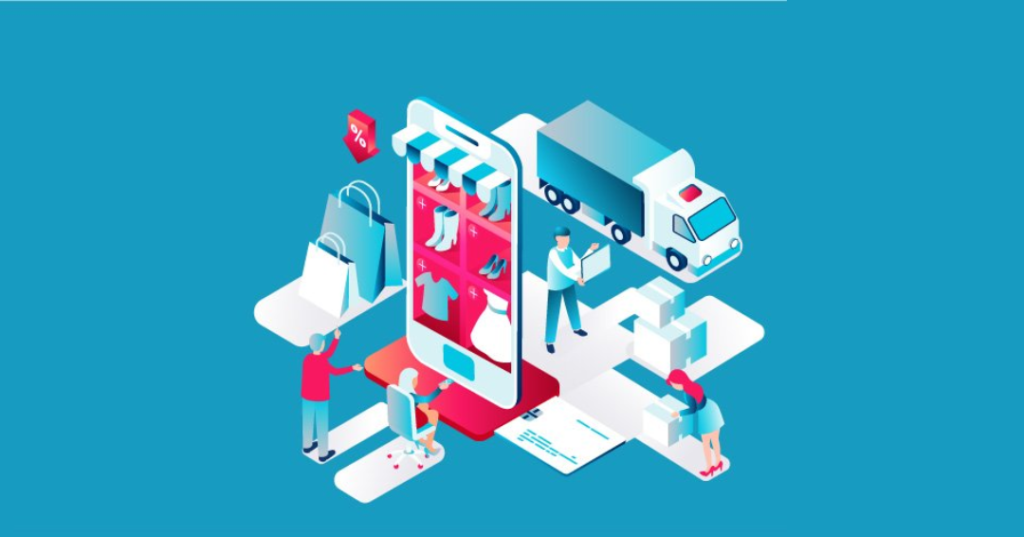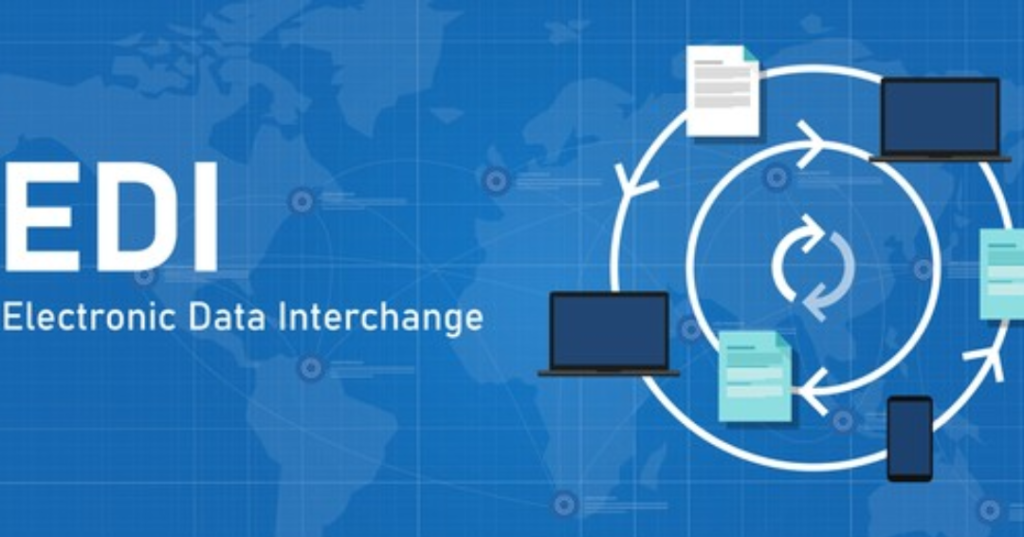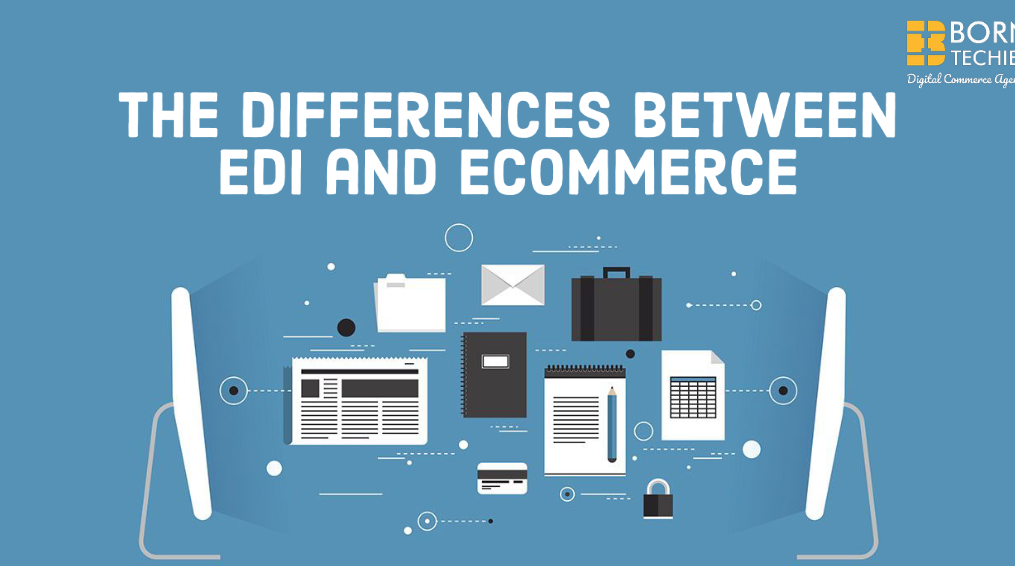The differences between EDI and eCommerce
There are plenty of divergent terms utilized to describe B2B procedure automation. These terms can be disconcerting, partly because they are so interdependent. This article will proceed into detail on these terms to dispel some of the confusion and clarify usual terms utilized within B2B process automation, counting the differences between eCommerce and EDI.
First, electronic commerce (eCommerce) is an extremely usual term that refers to the interchange of information via electronic media such as the Internet and private communication networks.
What are the two types of eCommerce?
- Business-to-Consumer (B2C) eCommerce – this is the term that most people are sensible of when eCommerce is raised. Each day, we experience B2C eCommerce, whether it is booking airline tickets and hotel reservations or obtaining books, shoes, and clothes online.

- Business-to-Business (B2B) eCommerce – as its name implicates, B2B eCommerce is the electronic interchange of information between two businesses, rather than between a customer and a business.
What is EDI?
Electronic data interchange (EDI) is the most usually utilized B2B eCommerce technology today. It is the computer-to-computer interchange of business documents, such as purchase orders and invoices, in a worth electronic format between business partners. You can utilize standards such as ANSI X12, EDIFACT, or an XML-based standard such as RosettaNet in the high-tech persistence. Many divergent types of EDI utilize divergent standards.

EDI has been utilized across many industries, counting retail, banking, making, high-tech, and services, since the 1980s. It rests a game-changer. To attain the benefits of EDI, the businesses intricated must train to be as tightly unified as possible with each other.
Twenty-first-century corporations anticipate a network of business partners – their providers, their consumers, their logistics providers, their banks – to function in a way that authorizes digital integration.
What are the two types of B2B Integration?
- Integration at the data level –cybernation of the exchange of business documents between business applications, such as automating the interchange of all the documents in the procure-to-pay procedure.
- Integration at the people level – authorizing B2B combination between the people in divergent companies during business procedures such as debate resolution and modern vendor registration.
Learn more about B2B unification solutions, as well as the many attributes and welfares of B2B managed services.
B2B integration at the data level
For two businesses to closely integrate at the data level, they require to automate the following tasks:
- Attach electronically – normally via the internet utilizing a secure communications concord, such as AS2, SFTP, or FTPS
- Interchange data electronically in a format that can be appreciated by the computer systems at every company – normally via an EDI standard format, which can be suddenly understood
- Translate the EDI data to the design of every company’s in-house system – generally skilled by utilizing special EDI translator software
B2B integration at the people level
For two businesses to closely combine at the people level, and truly cooperate to determine issues or plan modern capabilities, they require a central vault of evaluative information about business partners, such as details connected to eCommerce readiness, normative compliance, customer product safety, supplier variety programs, and environmental authority surveys.
Moreover, they require the information management tools to soberly and easily:
- Allow business partners to conserve their own company and contact profiles, thus protecting partner information latest and up-to-date
- Perform mass transmission to suitable segments of the trading partner base without depending on out-of-date spreadsheets on several employees computers
- Roll out compliance enterprises to all or a variant of your partner community
- Audit business partners’ compliance with various initiatives
- Capture, share, and unite on performance-related data that assists to quickly resolve multi-party disputes and discrepancies with full visibility and audit control. For instance, this can outcome in improvements like a decrease of over-payments out-coming from unfinished or poorly negotiated shipping, pricing, or claims disputes
Benefits of Electronic Data Interchange
As it turns out, EDI can be and is extremely advantageous. EDI has demonstrated to assist automate the ordering procedure and better regulations across the business. Some of its advantages include:
- Expand Speed & Accuracy
- EDI can speed your business cycles by 61%. Interchange transactions in minutes rather than the days or weeks of wait time from the postal service.
- Upgrades data quality, Conveying at least a 30% reduction in transactions with errors. Removing errors from illegible handwriting, lost faxes/mail, and keying mistakes.
- Cost & Time Savings
- Expenses connected with paper, printing, copying, storage, filing, postage, and document recovery are all decreased or terminated.
- Errors due to unreadable taxes lost orders, or inaccurately taken phone orders are terminated, saving time and funds.
- Enhanced inventory and supply chain
- Increased efficiency
- Automating paper-based assignments permits your staff to focus on higher-value tasks and gives them the tools to be more fruitful
- Rapid processing of correct business documents escorts to less re-working of orders, fewer stock-outs, and fewer canceled orders.
What are 3 divergent addresses to data-level and people-level B2B integration tasks?
- A “Do-It-Yourself” perspective. In which you are supervising for purchasing and conserving all of the connections and software systems that address both types of combination.
- A “Managed Services” perspective, in which you outsource the authority for all the B2B integration tasks.
- A blend of both 1 and 2.
Conclusion
Our Expertise Will helps you with your project top to bottom. We will commit to solving your issues and eCommerce development on time. Born Techies is the eCommerce enabler and official partner of Adobe Bronze Solution Partner, BigCommerce Preferred Partner & Shopware Business Partner. Born Techies –Digital Commerce agency offers Shopify, Shopware, Magento, and Bigcommerce development with the latest technologies.
For more inquiries, email us: [email protected] or else visit our website borntechies.com.

